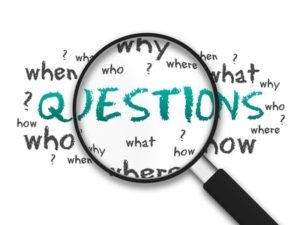 Interviewers know better than to directly ask “Are you easy to manage?” or “Do you get along well with others?”
Interviewers know better than to directly ask “Are you easy to manage?” or “Do you get along well with others?”
Instead, they’ll say something like this:
“How would you describe your ideal supervisor?”
Then they’ll read between the lines.
So beat them to it: read between the lines of what they say, and make sure you address that subtext, as well as the question on the surface.
Ask yourself two questions about each question:
- What is she trying to find out by asking that?
- How can I sell myself with my answer while still being authentically “me”?
With the “ideal supervisor” question, for example, the interviewer is not trying to find out how the company can choose the right supervisor for you. They’re probably not looking for input on how the existing supervisor can best work with you, either. They want to “read” your answer for insights on how you work with a boss.
Most candidates, if they don’t think much about it, will say something like this:
“My ideal supervisor would be someone who is very fair, always available for questions, and gives clear guidance but doesn’t micromanage.”
This answer is clear and true – both important qualities – but it doesn’t address what the interviewer is really interested in, and it does nothing to sell you. In fact, it may make you sound hard to please. A better answer would show that you perform well with various types of supervisors, ideal or not.
Here’s another common question:
“Tell me about a time you had to work with a difficult person.”
What are they trying to find out? They want to know about your willingness and ability to deal with difficult behaviors and achieve great results nonetheless. They want to know specifically how you have done this. They also may be testing you to see whether you are fair and discreet in what you say about others.
Have you ever been asked, “If we offered you the job, when could you start?” There’s more to this question than meets the eye. Some interviewers ask this question as a test to see if you’re really serious about the opportunity. Give an answer that shows you’ll be ready.
How are you going to remember, right there in the interview, to identify what the interviewer is looking for? By preparing and practicing. Look up lists of common interview questions in advance, analyze them and practice your answers.
Even if the interviewer asks totally different questions than you prepared for – as they will – you’ll “wing it” more effectively because you will have internalized the skill and the habit of approaching interview questions strategically.

